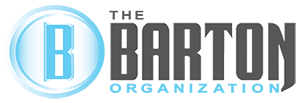If you haven’t heard it before then you will hear it now, search engine optimization is a key component in increasing search engine rankings. What this involves is everything from the design of your site to the text on each page of your site. All factors need to be optimized if you want to be placed at the top of search engine results. Increasing the volume and improving the quality of traffic that search engines drive to your site is what search engine optimization is ultimately about. Ten key factors for improving your site’s search rankings include:
1. Knowing your customer.
Search engine optimization is more about knowing what people visit your website and about the people you want to visit your website rather than just keyword placement and HTML coding. You need to learn to think like the customer. When you are able to do this then you will know what interests them, what they are searching for and how they are searching. Once you know the keywords they are likely to use it is easier to optimize your site accordingly. You will be able to rank high on searches that interest them and are of good value to them. By just assuming what you think they are thinking about isn’t good enough. Go outside, find your customers and ask them! Conduct some market research. Pass out survey’s/questionnaires or walk straight up to them face to face and ask them what they are looking for.
2. Write CONTENT! That’s right CONTENT.
Once you are able to get inside the customer’s head you will be able to optimize your site to meet their needs. Writing content is not a one time task. It requires a lot of hard work. The internet is constantly being updated. Customers are always looking for new material to digest in their head. The better your content on your site the higher you will rank in the search engines. Content is KING in the seo world. The more relevant and higher quality your site’s content is to a particular search the greater it will rank in the search results.
Focus on what your site does and what you want it to say before worrying about the keywords and <META> tags. Write good content that people will actually want to read. You want to make your site useful for all that view your site. Once you write your content everything else will follow. However, content may become outdated quickly that is why it is important to constantly update it and keep adding more.
3. Create a clear hierarchical organization to your web pages.
Web crawlers can find more web pages and content on a site if they are organized effectively. Each web page is part of an “outline.” Major headings should include the most important information. Lesser information should be included beneath major headings and in subheadings. Home pages should always include the most important information with all other pages branching out with less important information. Always make the important information visible to the customer.
4. Fine-tuning your keywords.
5. Always put the most important information first.
Web crawlers only crawl so on your page. Put your most important keywords higher up on your page to guarantee they will be crawled. The more important the content looks on the page the higher it will be ranked. If you were to visit someone else’s site would you start in the middle of their content or would you start reading at the top? You would start at the top! That is why it is important to put the most important information first!
6. Soliciting inbound links to your site can increase rankings on Google.
By increasing the number of sites that link to your site can greatly impact your rankings. The higher the PageRank on linking sites the higher your PageRank will become. It is important to get more higher quality sites to link back to yours then to get a larger quantity of lower ranking sites.
7. Submit your site to directories and search engine web indexes manually.
Instead of waiting for search engine crawlers to find your site you can submit your site to search engine’s web indexes. Careful not to add your site to spam directories. Remember quality not quantity when link building.
8. Create a sitemap for your webpage.
This will include all the URLs in your entire site. List them in hierarchical order. Sitemaps are used by search engines to determine what is where on your site. Sitemaps help speed up indexing and help hidden URLs be found. Even if you don’t create a sitemap crawlers may still be able to find your pages.
9. Instead of using images, use text.
Search engines can’t index images. Even if you have a pretty banner on your website that is great for the eyes it won’t make any difference on your rankings. Search engines see text and text is what ranks you higher on results. If you are going to include images on your site make sure you assign meaningful keywords to the image by first using <ALT> tag. Make sure you are linking pages with text links and not images.
These ten factors will help improve your sites search engine rankings, however it is important to get your whole team involved in search engine optimization. Don’t just leave it up to the marketing staff. Get everyone involved and you will be successful!






